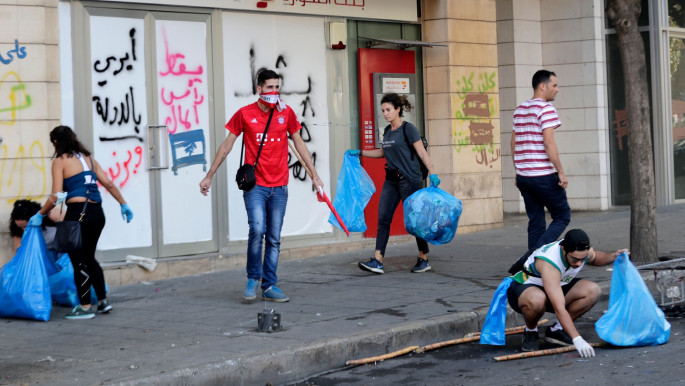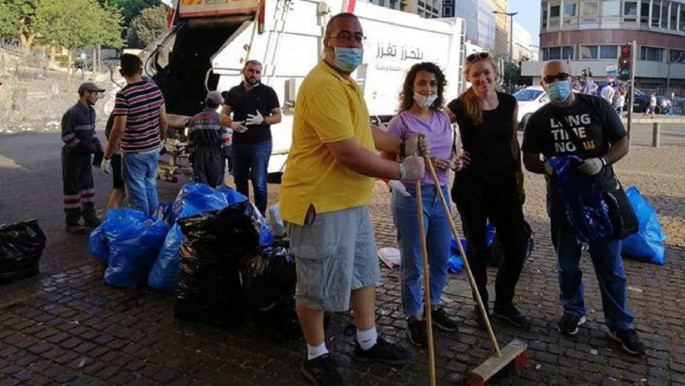In photos: Lebanese roll up sleeves and clean streets after protests
Medical student Lynn Abi Khalil, 17, says she could not take part in the spontaneous protests against the government - so instead, she picked up gloves and a trash bag.
"I haven't been participating in the demonstrations because my family doesn't want me to," she told AFP, picking up a garbage bag.
Hundreds of thousands have taken to the street acrossthe country to protest against the corruption of the ruling class and a dire economic situation that has forced many onto poverty and others to leave the country in search of a better future.
Also read: Lebanon PM Saad Hariri says he supports protesters' demand for early polls
In Beirut's main square, the ground is strewn with plastic bottles, burning garbage and the odd red and white Lebanese flag.
 |
|
| [Getty Images] |
On the pavement at the foot of a large mosque, volunteers crouch behind an orderly line of supplies, handing them out to those who have turned up.
In a country that has been notorious for its trash problems, it is inspiring to see so many stay behind to clean up the streets after days of passionate demonstrations.
 |
|
| [Getty Images] |
Despite the substandard recycling, the volunteers separate the garbage into blue, green and black bags for plastic, glass and metal, and general waste.
The volunteer movement has grown exponentially as teh streets have been filled every day since the protests began. Lebanese from all religious sects - an unprecedented such movement - have been venting their anger at the government, and then have also helped with cleaning them up.
 |
|
| [Getty Images] |
"From three or five people, we ended up being 50. From 50, we became 500. Today we have thousands of people who are coming," Peter Mouracade, one of the volutneers said.
Mouracade, the CEO of the Beirut Marathon, said he and other volunteers mostly find a lot of plastic bottles.
 |
|
| [image courtesy of Dalia Al Mokdad] |
When Mouracade first started on Saturday, it followed a night of some people overturning trash dumpsters and setting them alight, and even breaking shop windows.
"There are a lot of people who are feeling a lot of anger and a lot of pain, that's why there's so much destruction," he added.
 |
|
| [ Getty images] |
Lebanese anger boiled over on Thursday when the government attempted to implement a ludicrous tax on phone messaging platforms. While the government quickly dropped the plans, the protests morphed into demands for a sweeping overhaul of Lebanon's political system, with grievances ranging from austerity measures to poor infrastructure.
More than a quarter of Lebanon's population lives below the poverty line, according to the World Bank, while the country's political class has remained relatively unchanged since the end of a devastating 15-year civil war in 1990.





 Follow the Middle East's top stories in English at The New Arab on Google News
Follow the Middle East's top stories in English at The New Arab on Google News
![Israeli forces ordered bombed Gaza's Jabalia, ordering residents to leave [Getty]](/sites/default/files/styles/image_330x185/public/2176418030.jpeg?h=a5f2f23a&itok=_YGZaP1z)

